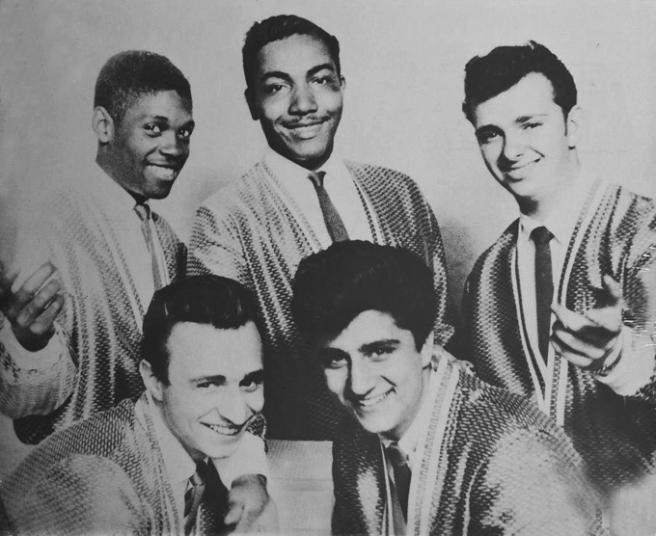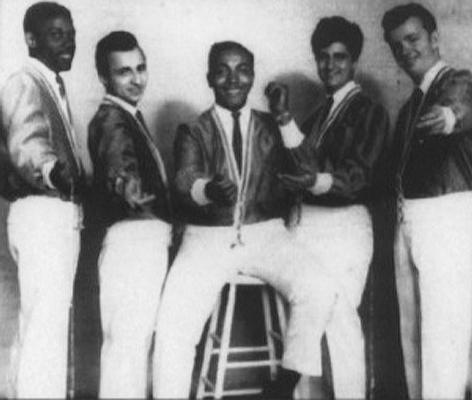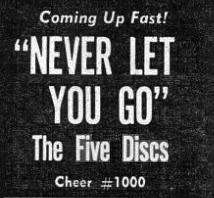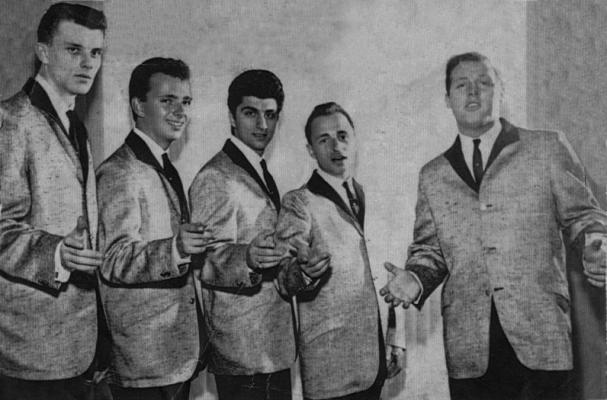
Top : Andrew Jackson, Mario DeAndrade & Paul Albano. Bottom : Joe Barselona & Tony Basile
Personnel :
Mario DeAndrade(Lead)
Paul Albano(First Tenor)
Tony Basile(Second Tenor)
Joe Barselona(Baritone)
Andrew Jackson(Bass)
Discography :
The Five Discs
Biography :
The Five Discs were one of several doo-wop groups (Carollons, Chips, etc.) to trace their origins to the Bedford-Stuyvesant district of Brooklyn, New York, USA. They were formed in 1954 by Joe Brocco (lead), Joe Barsalona (baritone), Paul Albano (first tenor) and Tony Basile (second tenor). Composed of Italian-descended young men and originally titled the Flames, they subsequently shuffled the pack by adding black singers Mario deAndrade and Andrew Jackson from the Love Notes.

This produced a new line-up of DeAndrade (lead), Jackson (bass), Albano (first tenor), Basile (second tenor) and Barsalona (baritone), though membership remained fluid over ensuing years. After recording demos at Bell Sound studios in New York the group started to offer these to interested parties. There were no takers until songwriter Billy Martin introduced them to the proprietors of the Emge Records label. They were still titled the Flames when they recorded deAndrade’s song ‘I Remember’, but when it was released they had chosen a new name, the Five Discs.

Despite achieving strong popularity in the local New York and Boston markets, the group felt dissatisfied with the label’s promotion of the single, and looked elsewhere. ‘My Chinese Girl’, released on Dwain Records in 1959, failed to improve their standing. Jackson and DeAndrade then left, and were replaced by Lenny Hutter of the Chalets on lead and John Russell on bass. ‘Come On Baby’ emerged to little fanfare in 1961, and Hutter left immediately, to be replaced by John Carbone. Calo Records took over the promotion of Carbone’s debut on ‘Adios’, an old deAndrade song.


However, the band moved on again, this time to Cher Records, with Russell replaced by Charlie DiBella. ‘Never Let You Go’ was the last single to feature Carbone, as Eddie Parducci of the Delvons took his place. It was their most successful project for some time, but still failed to breach the national charts.

